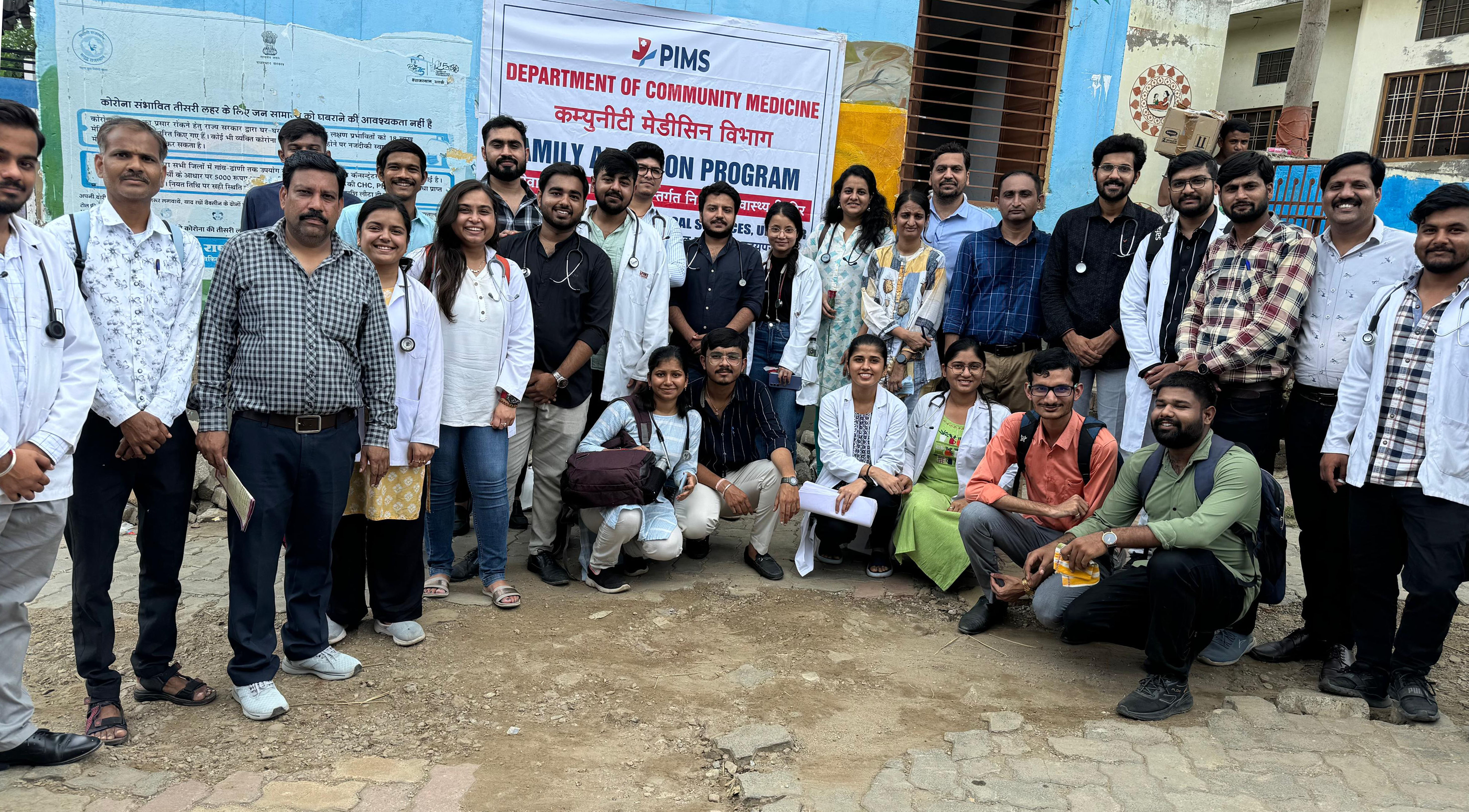
**Udaipur:** Under the National Health Program's Family Adoption Program, PIMS Umarda organized medical camps in three adopted villages: Lakadwas, Matoon, and Dhol Ki Pati. President of Pacific Institute of Medical Sciences, Ashish Agrawal, stated that since 2021, PIMS Umarda has been actively participating in this program. In 2022, medical camps were held on July 13 in Lakadwas, July 19 in Matoon, and July 20, 2024, in Dhol Ki Pati.
Various departments of PIMS, including doctors, nursing staff, lab technicians, community medicine faculty, medical social workers, and other support staff, participated in these camps. A large number of villagers and school children enthusiastically attended the camps for medical consultations, examinations, and free medications. Approximately 150 families in each village have been adopted by the students.
The success of this initiative was supported by Ashish Agrawal, Sheetal Agrawal, Vice-Chancellor Dr. B.L. Kumar, Registrar Dr. Devendra Jain, Principal Dr. Suresh Goyal, Medical Superintendent Dr. Chandra Mathur, Dr. Dilip Kumar Parikh, Professor and Head of Department, and Dr. Nitesh Mangal. Vice-Chancellor Dr. B.L. Kumar noted the significant turnout for random blood sugar tests, hemoglobin level checks, blood group tests, blood pressure measurements, and various consultations.
**ABHA Cards Issued to Families**
For the adopted families, ABHA cards (Ayushman Bharat Health Account ID cards) were created using their Aadhaar cards. Printed ABHA PVC cards are being distributed to the families. Each selected family received an FAP Family Card with a family code number, granting them benefits such as doctor consultations, X-rays, USG, and five days of medication upon admission to PIMS hospital. Stickers with the family code number were placed in front of the selected houses.
**About the Program**
The Family Adoption Program, initiated by the Ministry of Health and Family Welfare, Government of India, in 2021, is coordinated by the National Medical Council (NMC), New Delhi. Since 2021, every medical student entering medical colleges across the country is required to adopt five families in their first year to assess, monitor, and address the major health issues of these family members. The adopted families will be monitored continuously for three years.
**Activities Conducted**
The activities so far include introductory visits to the families, gathering information about family size and structure, anthropological data of family members, and identifying major health issues. Medical examinations were conducted to assess blood pressure, blood sugar, hemoglobin levels, etc. The medication taken by members for hypertension and diabetes was also identified. As part of raising awareness for a better health ecosystem and environment, tree plantations were conducted in these villages.